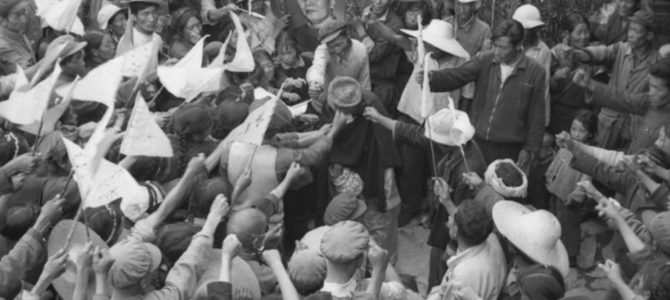
“That is all right. I had them on my list, too,” a prominent public figure joked after learning that he had been blacklisted by a political opponent.
Who said this? Was it Sen. Josh Hawley, R-Mo., after Simon and Schuster canceled his book deal because he challenged the Electoral College results from Pennsylvania, even though Democrats had similarly objected in 2001, 2005, and 2017?
Was it a Trump administration official responding to Rep. Alexandria Ocasio-Cortez’s call to blacklist and deny them future employment?
Was it black conservative radio host Larry Elder after Hollywood censored his documentary “Uncle Tom,” whose IMDB rating of 8.9 surpasses 9 of the past 10 Oscar winners for Best Documentary?
How about someone responding to veteran journalist Katie Couric’s call to “deprogram” Trump supporters?
Or My Pillow CEO Mike Lindell, after Twitter banned him along with thousands of conservatives, including former President Donald Trump? Or Newmax reporter Emerald Robinson’s response to CNN’s call to cancel Newsmax?
No. “That is all right. I had them on my list, too,” was the response of David Low, a prominent British cartoonist, when he learned in 1945 that his name was one of 2,300 Britons on Adolf Hitler’s blacklist. Had Hitler captured England, the Gestapo was to arrest those on the list.
No sector of English society or political opinion was spared from Hitler’s British blacklist. The Gestapo targeted Jews in England, members of Parliament, executives and employees of more than 170 British firms, dozens of university professors, members of 400 social clubs and organizations, and journalists at 35 media outlets.
Censorship and blacklisting are the hallmarks of an unfree society. The Third Reich seized power in Germany in 1933 and immediately began controlling newspapers, radio, and films through censorship. Books were banned and burned.
Censorship was also a tactic used by Soviet Russia. When the Bolsheviks took power in Russia in 1917, one of their first acts was to issue the Decree on Press to ban articles critical of their authority. Based on real-life experiences with censorship and other horrors in communist Russia, George Orwell wrote his book “1984” in 1949 to warn the West against totalitarianism. Today China’s Communist Party uses the Great Firewall to block news and online information from its citizens.
Today’s speech punishments by Twitter, Facebook, Hollywood, corporations, and book publishers against Americans are obviously not equal to the mass casualty horrors of totalitarian governments. A direct comparison is not the point here. It’s to point out that certain tools are hallmarks of repressive societies that a society that aspires to be free should not emulate, even faintly.
Censorship and blacklisting are serious unjust cultural acts that increasingly filter Americans into second-class citizens based on their political viewpoints. The censorship and blacklisting that we are seeing in America right now is viewpoint discrimination. Censorship and blacklisting need to be fully rejected by American society before they become accepted cultural norms that make even worse injustices likely and more possible.
It was censorship that gave birth to free-speech advocacy in America and fostered the conditions for our nation’s unique First Amendment, which legally protects unpopular speech. After his brother was thrown in jail for publishing a newspaper in 1722—the new social media of the era—Benjamin Franklin wrote a series of articles under a fake name, Silence Dogood. He had to hide his identity because he didn’t truly have free speech.
His wise words are fitting for today’s threats: “Without freedom of thought there can be no such thing as wisdom and no such thing as public liberty without freedom of speech. Whoever would overthrow the liberty of a nation must begin by subduing the freeness of speech.”
Censorship and blacklisting are narrowing Americans’ liberties and subduing the freeness of our nation today. We must hold the line and stop it now before the current climate of fear degrades into an even worse social and government climate in which previously unimagined restrictions become possible.
How can you help stop this vicious cycle from degrading further and refuse to do as you are told to do? Watch Larry Elder’s “Uncle Tom.” Sign up for updates from Hawley’s new publisher (and one of mine), Regnery Publishing.
Use alternatives to Facebook, Twitter, and Google, such as Clouthub and DuckDuckGo. Encourage tolerance for different viewpoints at your workplace and hire conservatives. To counter Couric’s call to de-program, download, read, and share the “1776 Report.” All these and more are strategies all of us can use to exercise our society’s weakening free speech muscles.








